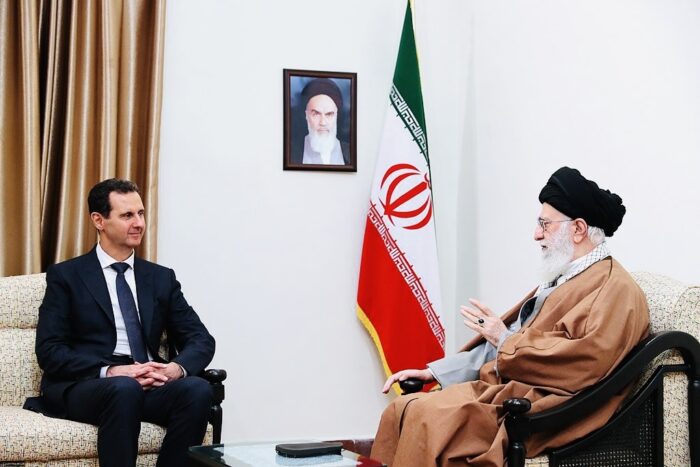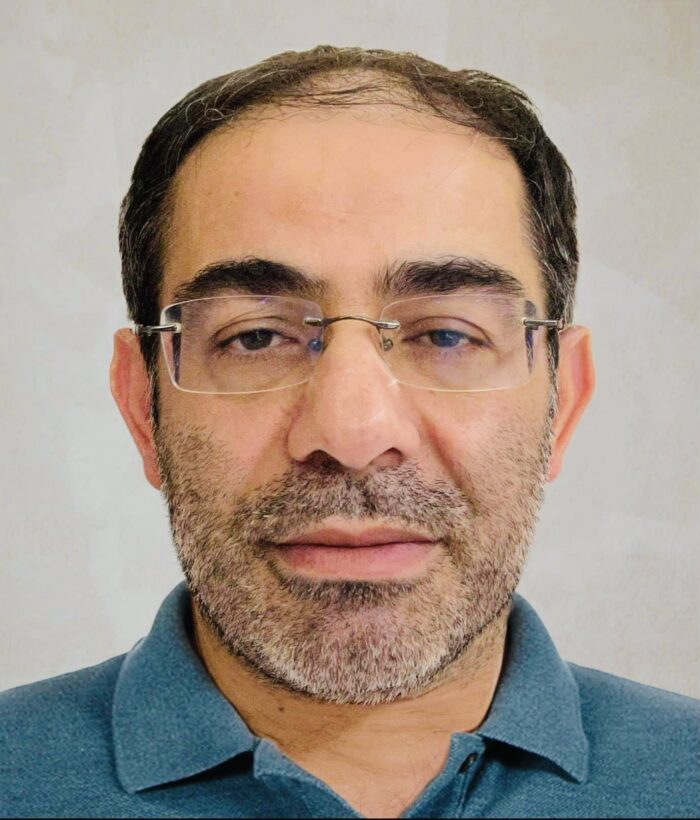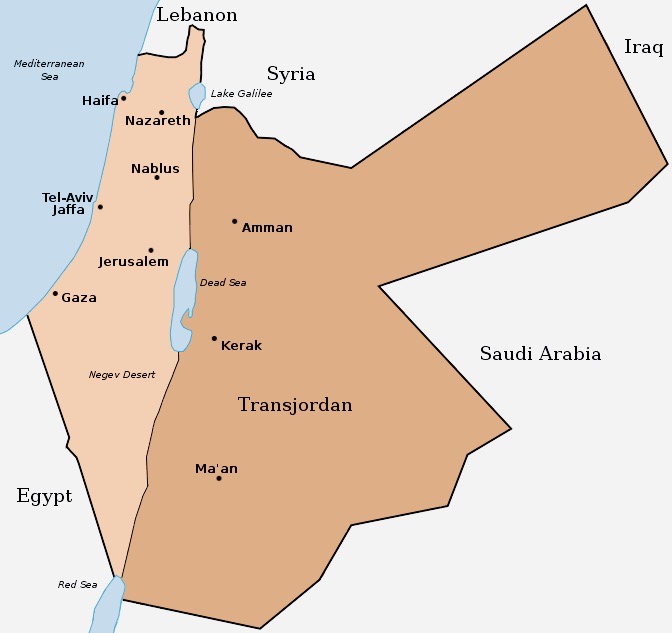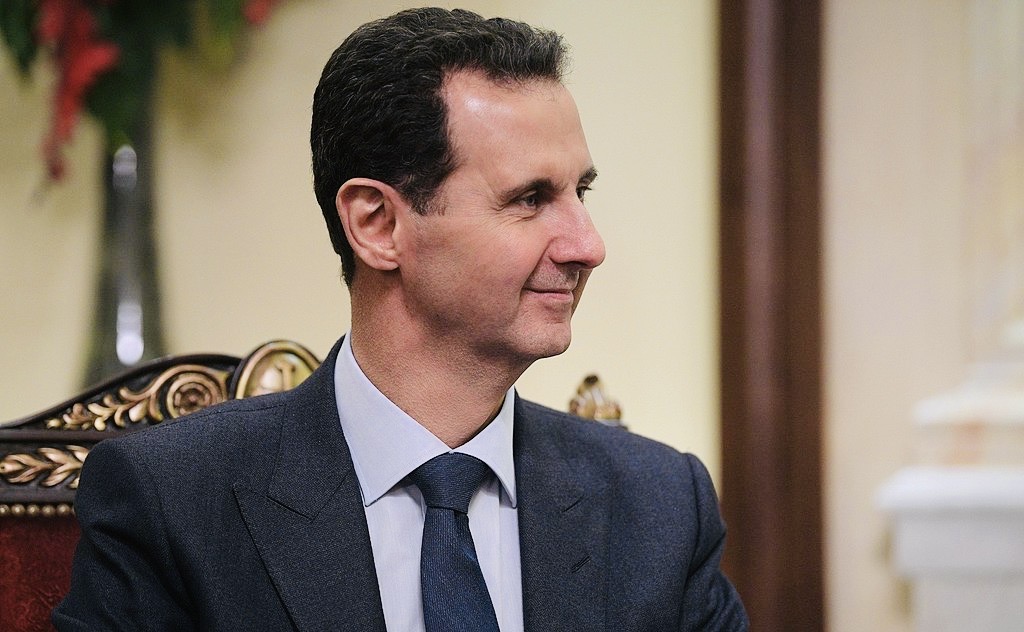Syria would be wise to heed Israeli warnings that its complicity in the transfer of Iranian weapons and munitions to Hezbollah carries a severe price.
For years now, Israel has been busy interdicting Iranian arms shipments to Hezbollah via Syrian territory. Israel stepped up its campaign during the final phase of the third war in Lebanon, which officially ended with a ceasefire on November 27.
Hezbollah, having lost much of its rockets and drones during the nearly 14-month long war with Israel, seeks to replenish its arsenal so that it can be battle-ready again. Hezbollah’s ultimate aim is hardly a secret: Israel’s destruction.
Its ally, Iran, Israel’s deadliest enemy, is eager to assist Hezbollah.

Israeli Prime Minister Benjamin Netanyahu, bent on blocking Hezbollah’s presumed rearmament program, warned Syrian President Bashar al-Assad most recently on November 26 that he is “playing with fire” by enabling Iranian weapons shipment to Hezbollah, which has helped Syria militarily during its civil war. This conflict is still raging, judging by a current Syrian rebel operation to capture the northern city of Aleppo.
Syria, a key ally of Iran and Russia, a member of Iran’s Axis of Resistance alliance and a sworn enemy of Israel since its birth in 1948, has been helping Hezbollah since its formation in 1982.
For the past eleven years, the Israeli Air Force, the long arm of Israel, has been attacking Hezbollah and Iranian bases in Syria. Since Russia’s military intervention in the Syrian civil war in 2015, Israel has often given Russia advance warning of its planned air strikes in Syria targeting Hezbollah sites, Iranian facilities and Syrian military facilities.
This pragmatic arrangement, which was devised by Netanyahu and Russian President Vladimir Putin shortly after Russia dispatched an expeditionary force to Syria to shore up the Syrian armed forces, has prevented accidental clashes between Israeli and Russian planes.
If Assad chooses to ignore Israel’s warning, he will pay heavily, Israeli officials have said. Israel, exercising its legitimate right of self-defence, is fully prepared to continue striking Hezbollah arms convoys heading toward Lebanon by way of Syria. Israel is also ready to bomb Syrian military assets if the need arises.
Syria, which has been greatly weakened by the ongoing civil war, has been relatively careful to stay out of Israel’s conflict with Hezbollah and Iran. Assad has kept the Golan Heights relatively quiet, knowing full well that a serious clash with Israel would weaken his ability to protect his grip on power. He has been president since 2000, having inherited his position from his father, Hafez al-Assad.
Nonetheless, the Syrian government continues to tolerate the smuggling of Iranian arms to Hezbollah through its territory and is thus complicit in Hezbollah’s aggression against Israel.
No longer willing to turn a blind eye to Syria’s complicity, Israel has resorted to military means to drive home that point.
In recent weeks, the Israeli Air Force has destroyed three border crossings between Syria and northern Lebanon that Hezbollah has utilized to smuggle weapons. Iran has delivered all manner of arms to Hezbollah through these vital crossings.
Two months ago, in a daring raid, Israeli commandos blew up the Scientific Studies and Research Center in Masyaf, Syria. Staffed, in part, by Iranian personnel, this facility had been making precision missiles for Hezbollah.

Last month, Israel eliminated the commanders of Unit 4400, Hezbollah’s weapons smuggling ring. Within the space of about two weeks, Israel assassinated Mohammed Ja’far Qassir in Beirut and his replacement, Ali Hassan Gharib, in Damascus.
On November 22, in its deadliest strike in Syria, Israel struck pro-Iranian militias, including Hezbollah operatives, in the city of Palmyra, killing 92 fighters.
Several days ago, just hours before the current truce in Lebanon went into effect, Israeli aircraft bombed Hezbollah’s largest underground precision-guided missile plant in a region of Lebanon close to the Syrian border. This factory was built with Iran’s financial and scientific support.
On November 30, Israeli fighter jets struck Syrian military infrastructure near border crossings between Syria and Lebanon, which, Israel says, were being “actively” used by Hezbollah to transfer weapons.
Iran, too, has been smuggling advanced weapons and munitions into the West Bank via Jordan, which has been formally at peace with Israel since 1994. The recipients have been Palestinian radicals whose overarching aim is Israel’s destruction.
Israel has intercepted some of these shipments, which are controlled by special units of Iran’s Islamic Revolutionary Guards Corps.
On November 27, in a joint operation, the Shin Bet — Israel’s internal intelligence agency — and the Israeli army foiled an Iranian attempt to smuggle arms to Palestinian gunmen in Jenin, a hotbed of Palestinian resistance to Israel’s occupation of the West Bank.
Israel captured a relatively large cache of claymore mines, RPG launchers, rockets, mortars, mortar launchers, assault and sniper rifles and handguns.
The Shin Bet carried out similar operations last March and August.

Israel’s 309-kilometre border with Jordan is fairly porous and comparatively easy to infiltrate. In light of this vulnerability, Israel has decided to upgrade its defences along the border, which runs from Eilat in the Negev Desert to the tip of the Golan Heights, which Israel seized during the 1967 Six Day War.
Last week, Defence Minister Israel Katz announced that preliminary work has begun to upgrade the existing border fence, a plan that has been discussed in the past. Katz’s predecessor, Yoav Gallant, requested funding for its construction.

Israel is also establishing a new army division to better secure the Jordanian border.
Clearly, Israel cannot afford to be complacent with respect to its security. Its enemies, ranging from the Palestinians to Hezbollah and Iran, are plotting its demise day and night. And Israel is responding in kind.
